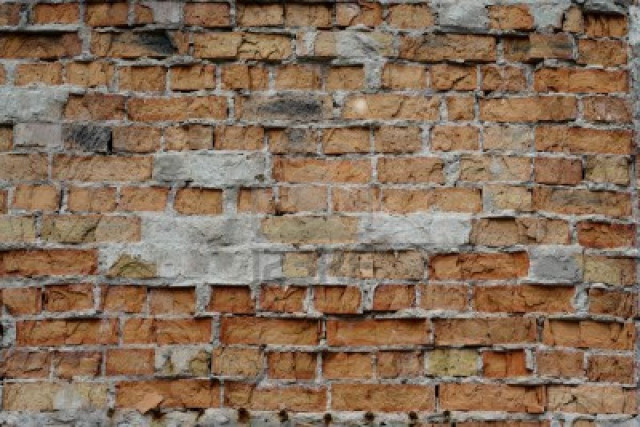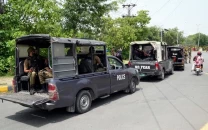Standing on a prayer: Life in Pindi’s crumbling houses
Poverty is forcing many people to keep staying in dangerous buildings.

Muhammad Usman was closing up his shop in the Fruit Market to go to Urdu Bazaar, where he lives in an apartment he inherited from his parents.
“I live on the second story of a four-storey building. This is where I grew up. I can’t just pack up and leave; neither can I afford to, nor do I want to. I inherited this place from my parents. This is my home. This is my neighbourhood,” said the 45-year-old.
Just two weeks have passed since an aging building in Lyari in Karachi collapsed, crumbling 32 lives. Yet, with that memory still fresh, the residents of dilapidated buildings in the city areas of Rawalpindi continue to refuse to vacate their houses, despite the fact that the Rawal Town administration has issued warnings to them during the rainy season.
A majority of the 59 buildings declared unsafe for living are situated in localities like Ganjmandi, Urdu Bazaar, Purana Qila and other parts of Raja Bazaar in the old part of Rawalpindi. “If the government is ready to provide us with safe houses as an alternative, we would be willing to vacate these buildings,” said Sheikh Tahir Amin, another resident of Urdu Bazaar.
He said that while most of the locality was aware of the risk, they continue to live in decrepit structures because of a lack of options: most of them are unable to afford to move, or to tear down the old structure and rebuild on the same site.
“We know that we can lose our families and property if the building caves in. We know the risk is higher during the monsoon season, but we have no choice,” said Amjad Khan, a labourer based in Namak Mandi who lives on rent in an old building.
On the other hand, Rawal Town’s administration expressed their inability to force people living in decrepit buildings to vacate, given the absence of any relevant laws or rules.
Rawal Town Administrator Saif Anwar Jappa said the civic body had sent notices to the owners and residents of different buildings.
“The people are not ready to move unless they are given alternate living arrangements by the government, which is just not possible,” the administrator said.
“We can only warn people about the vulnerability of buildings,” he added.
On temporary housing arrangements, Jappa said, “During flash-floods, these are made at the government schools and colleges and basic amenities are provided for that short duration.”
The administration has the authority to raze buildings that are dangerously dilapidated, but such action is not on the cards. “People are always informed and warned well before time,” he said.
Until an agreeable solution is found, people will keep living in these dangerous building. As Usman, the fruit- vendor said, “Living in my ‘risky’ home is safer than living under the open sky.”
Published in The Express Tribune, August 19th, 2011.



















COMMENTS
Comments are moderated and generally will be posted if they are on-topic and not abusive.
For more information, please see our Comments FAQ